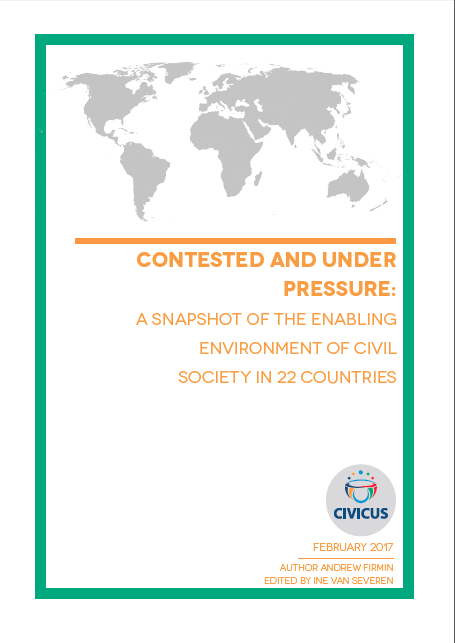CIVICUS have published the findings of their report, Contested and under pressure: a snapshot of the enabling environment of civil society in 22 countries. The data was collected through the Enabling Environment National Assessment (EENA), an action-oriented research tool designed to assess the legal, regulatory and policy environment for civil society.
The research reveals many challenges to the work of civil society organizations (CSOs). While the report recommends that CSOs should be able to form and function independently and without having to seek permission from state agencies, it was found that across the 22 EENA countries, CSOs of many kinds must register with the authorities when they form, and in many cases are not free to act without the state’s permission. This undermines the autonomy of CSOs and has raised concerns about the neutrality of registration and reporting procedures, with some governments insisting that CSOs align with their priorities and programmes.
The report also reveals that the laws and regulations affecting civil society, including recently introduced anti-terrorism laws, are often disenabling and can restrict the fundamental rights of association, peaceful assembly and expression. It was found that state agencies and security forces often abuse their powers and intervene to disrupt assemblies, sometimes on political grounds. The report recommends seeking greater accountability over their role, while outlining the various threats to CSO’s freedom of expression; laws of defamation, libel and slander often impose heavy sanctions, and concentrated media ownership and state intervention in the media offer further challenges.
While the research does highlight some positive examples of cooperation between CSOs and governments, it also found many instances where relations are more hostile, with CSOs experiencing more restriction when they raise concerns with which governments disagree, or work on issues that are contested or seen as controversial. The report seeks to encourage the adoption of structured, regular, transparent and broad-based engagement spaces between governments and civil society.
For the full report, see here.




Comments (0)